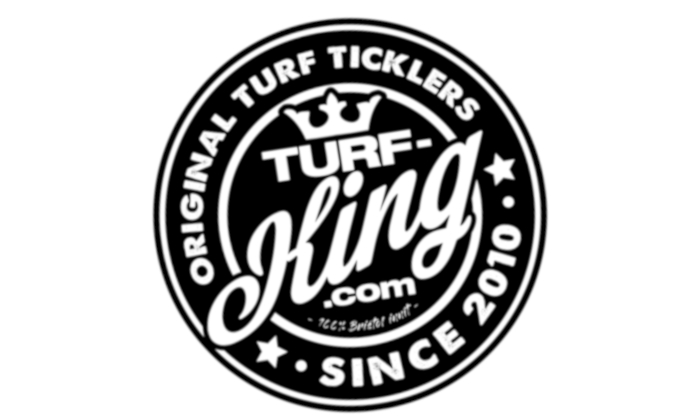artificial grass blade profiles
avoid ‘softest ever’ artificial grass products
‘Blade profile’ refers to the shape of the yarn extrusion that makes each blade of artificial grass
A number of blades with different profiles are grouped together and looped through the backing material to make a tuft. Tufts are created in rows which in turn, side by side make artificial grass.
When looking at blade profiles the most important blades to look at are the ones that make up the main body of the grass. The tall blades that are most frequent in the product.
Blade profiles fall into two different categories – flat or structured. There is usually also a curly thatch yarn in the product but this will be a flat profile that has been mechanically altered. A flat blade profile means exactly that – the blade is simply a flat extrusion of plastic. Structured blade profiles however come in a number of different shapes and they are often signified by a letter – so for example a ‘c’ profile blade is shaped like a ‘c’ down the length of the blade, a ‘v’ profile is shaped like a ‘v’ and so on.
The blade profile is very important in the durability, feel and lifespan of your artificial grass. A blade profile with structure will create a denser feeling product with better vertical memory and ultimately it will stand up to long term wear and tear better. Its importance is can be visualised in the example of a strip of paper; if you take long thin strip of paper and hold it vertically in one hand it will fall over. If you give that paper structure, i.e. by folding it in the middle or curving it into a ‘c’ shape you give the paper the ability to support itself.
This example directly transfers into artificial grass and one of the first indicators of the quality of an artificial grass product is its ability to stand up after being unrolled for the first time. A good quality structured profile will stand up quicker. A bad quality unstructured blade profile won’t stand up at all without assistance (brushing etc.)
All quality-led manufacturers producing products for general landscape use should be using structured blade profiles – the science speaks for itself. The reality is that many don’t and this is for a number of reasons; structured blades cost more to produce; many of the profiles such as ‘c’ and ‘v’ are patent protected so can only be used by the company that owns the patent; mass procurement of yarn materials meaning manufacturers are sat on stock piles which they need to use before they can update their product.
Do your own test and line a flat profiled product sample next to a structured profile sample where your door matt usually is or under your desk for a few weeks and you will see the benefits.
It’s worth noting that a structured blade profile product will feel stiffer when new. This isn’t a bad thing in a product that you are expecting to take 15 / 20 years of repeated use and abuse. Products soon soften up with use and with warmer weather.
How to do a side by side comparison of blade profiles
Start by taking a single tuft out of each of the grass products you want to compare. A tuft comprises of a number of individual yarn ends (blades) grouped together and tufted through the latex backing and back out again to give the appearance of two clumps of grass. To do this you will need to press a knife blade underneath the centre of the tuft on the back of the grass as shown in the picture below and gently pry the tuft loosely from its latex backing. Then with your fingers pull the tuft free from the backing. This should be fairly easy to do.
Looking at the tuft – you will be able to see that there will be a combination of different types of yarn. In most good products there will be a combination of flat, structured and textured thatch blade profiles. A better product will usually have more structured blade profiles and less flat ones.
The 2020 TurfWorks ‘Majestic’ product has been developed with a ‘y’ profile yarn which is shaped like the letter and gives the extrusion superb vertical strength and bounce-back ability whilst allowing it to relatively soft to touch.
Summary
Flat blade profile are bad, structure blade profiles are good. The end.
About Turf King
Turf King is a small but elite group of the country’s finest Turf Ticklers tasked with the supply, installation and maintenance of artificial grass across the sports, education and domestic markets. We don’t take ourselves too seriously but one thing we won’t compromise on is the quality of the products and services we offer. We don’t do budget and we don’t do cheap, we just do awesome! Our regular customers would recommend us for our old fashioned business values: we do what we say we are going to do; we don’t cut corners; we do it once and do it right!
Whether you’re looking for a small piece of grass for a DIY project or a couple of thousand m² supplied and installed on a city centre rooftop we’ve got your back. No matter how ‘out-there’ your idea is we’ve got an awesome team who most likely will have done something similar before and we’d love to help – nothing is impossible!
Follow us on social media for regular updates about who we are and what we do.
❤️ Team TK
Need Help?
contact the turf doctors via our contact us page or social media accounts. We love to help.





